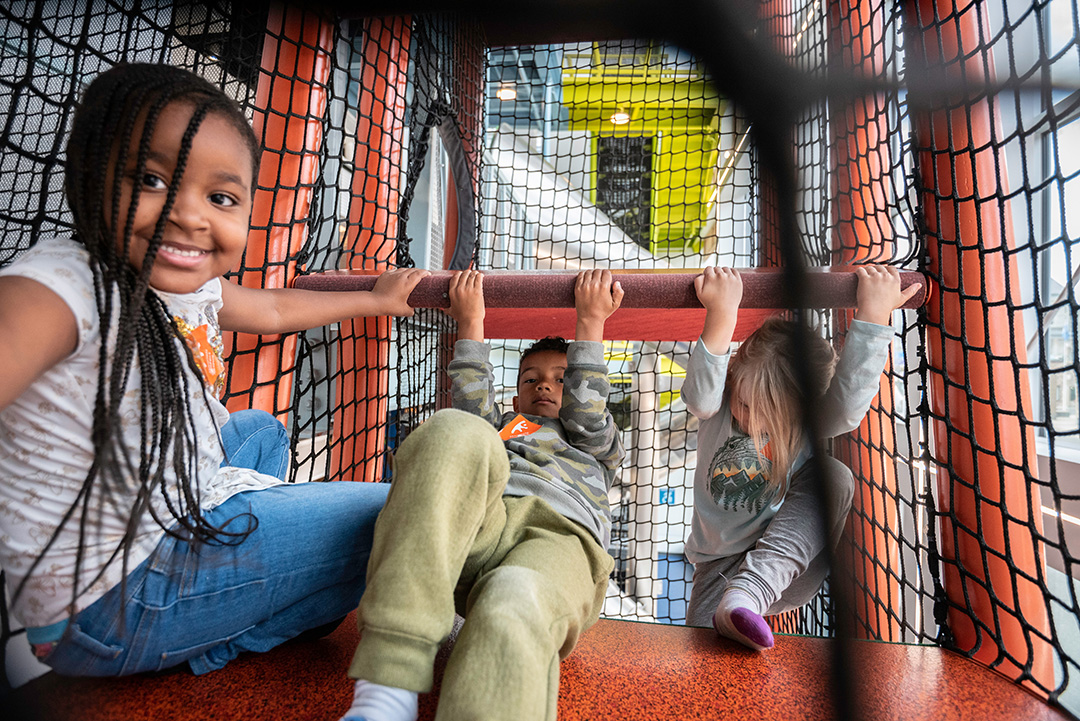
Play Boosts Emotional and Mental Health in Kids
It’s no secret that the amount of time kids spend playing has been declining. In fact, kids growing up today play an average of eight hours less per week than children did in the 1980s.
The trend has prompted warnings from the American Academy of Pediatrics and the World Health Organization that a lack of play time has a negative impact on kids.
When kids don’t play enough, they miss out on opportunities to build important skills – such as critical and creative thinking, communication, collaboration and more.
The decline in play also contributes to rising levels of anxiety, stress and depression in kids. Researchers from National Survey of Children’s Health found a 20 percent increase in anxiety diagnoses in kids ages 6 to 17 between 2007 and 2012. And a study published in 2019 in the Journal of Abnormal Psychology found that between 2009 and 2017, rates of depression rose by 47 percent among those ages 12 to 13. Since the COVID-19 pandemic, the Center for Infectious Disease and Research found rates of anxiety and depression in children have doubled.
What Can Parents Do?
Life is busy. There are a lot of things outside of our control. We get it. Declining play isn’t the only factor contributing to rising mental health issues in kids. More regimented school schedules and increased screen time, for example, play a significant role. Academics, structured activities and other outside pressures take up a lot of time and can be overwhelming. Recent upheavals from the pandemic and social unrest are big contributors. But play not only helps kids build cognitive skills, it contributes to emotional and mental health. When kids are given the space and freedom to play, the benefits are powerful.
We encourage parents to do their best to protect children’s playtime by setting aside a little bit of time each day to ensure kids can experience the power of play. We also encourage you to get in there and play too! Play is good for everyone no matter their age.
How Does Play Reduce Stress?
Through play, kids:
- Gain a sense of control. When kids direct their own play, they gain a sense of control and build confidence.
- Solve problems and build resilience. Play provides a safe space to try something new, tackle challenges and try, try, try again if at first, they don’t succeed.
- Develop social-emotional skills. When kids play with each other, they develop social-emotional skills like empathy and compassion, develop self-control and learn how to work through conflict.
- Discover their interests. Through unstructured play, kids follow their interests, which helps them build a sense of self and sparks curiosity and wonder.
- Strengthen relationships. When parents and kids play, it’s a bonding experience – one that builds life-long memories and strengthens relationships.
- Experience joy. Simply put, when we play, it brings a sense of happiness and joy to the world.

SUPPORTING A CHILD’S PLAY
SUPPORTING A CHILD’S PLAY
Playful Mindset Turns Chore Time into Play TIme
There’s no way around it: There are always chores to do and errands to run.
Those responsibilities don’t have to be a drag on an otherwise lovely day. What if, instead, they became a way to engage with kids and have some playful time together?
Tips for Tackling the Boredom Blahs
Kids are hard-wired to play. But even for children, the free and imaginative play that research shows is best for their development doesn’t always come easily. Sometimes their energy levels are low, daily frustrations are too high or they just can’t seem to find the inspiration to create their own fun. That’s when the dreaded “I’m bored” comes out.
Three Tips to Get the Most Out of Screen Time for Kids
Study after study shows that engaging with technology alongside your child helps them get the most out of it.
Helping Kids Manage Stress
While we can’t keep kids from feeling stressed, we can play a crucial role in helping kids feel safe and secure during stressful times.